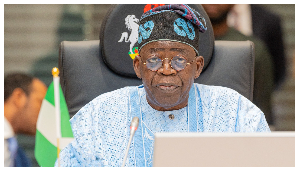The Catholic Relief Service (CRS) on Thursday organized this year’s World Toilet Day in the Upper East Region to create awareness on the need to stop Open Defecation and to adopt good sanitation practices such as hand washing with soap.
The World Toilet Day is a global event endorsed by the United Nations, Governments and International Organizations like the CRS to create awareness among the general public on the importance of owning and using a decent latrine for improved health and well-being.
The Upper East Region has been rated last at the bottom, among the ten region of Ghana when it comes to Open Defecation; hence the event being held in the area was to sensitize people on the need to avoid the negative practice which has negative health implications.
With the theme “The Impact of Open Defecation on the Socio-Economic Development of Ghana” the event was held at Tongo in the Talensi District and provided a platform for School Children drawn from the District to stage a Drama on “Owning and Using a Decent Toilet as well as Hand Washing with Soap under Running Water”
Prior to the Durbar, students of schools in the area undertook a route march on the principal streets of Tongo to create awareness of the celebration of the day.
The occasion attracted stakeholders including the Political Head of the District, the Regional Environmental Health Officer, Regional Director of Community and Sanitation Agency, the representative of the Regional Director of the Ghana Education Service and the District Director of Health among others.
Speaker after speaker expressed concern about the impact of Open defecation on the Socio-Economic Development of the country and the importance of owning and using a decent latrine as well as adopting good sanitation practices such as hand washing with soap.
The District Director of Health Services, Ms Evelyn Naaso, observed that if good sanitation practices were observed, preventable diseases such cholera and diarrhoea would be minimal and would reduce the huge government expenditure on health.
“Critical time to wash our hands include before and after eating, after toilet, before cooking, after attending to sick children among others,” she said.
Mr Cletus Atuuk, Deputy Director of the Ghana Education Service, in charge of Human Resource and Development, noted that most of the schools in the area were without toilets compelling both teachers and school children to practice open defecation.
Mr Thomas Awiapo, Head of CRS in charge of Tamale Office, on behalf of the CRS Country Representative, Lisa K . Washington- Sow, stated that to help compliment government’s efforts at addressing the problem, the CRS this year would start constructing 48 all-inclusive institutional latrines out of a total of 238 latrines to be constructed under the Integrated –Sanitation Hygiene and Nutrition for Education(ISHINE) project over three years in six Districts in the Northern and Upper East Regions.
“CRS Ghana and its partners have been providing various interventions spanning from education, health and portable water, sanitation and emergency relief over the last five decades.
“Over the past three years and for the next five years, CRS has narrowed down to three main strategic programme areas namely health, agriculture and livelihoods and emergency relief. A good number of our health interventions focus on water, sanitation and hygiene in the three Northern Regions. CRS has and will continue to contribute to toilet availability and use in schools and households in the areas,” he said.
Health News of Monday, 8 December 2014
Source: GNA












